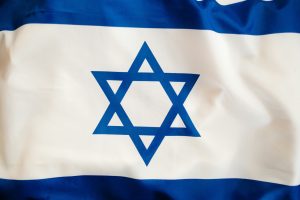The preparations for this year’s official memorial days will need to be different and adapted, sensitive, and empowering. Focusing on modest celebrations, expressing support for the IDF and security forces, and showing solidarity with citizens affected by the war can serve as a meaningful response.
In the coming weeks, we will mark the national memorial days- Holocaust Remembrance Day, Memorial Day for Fallen Soldiers of the IDF and Victims of Terror, and immediately following, Independence Day. These memorial days will accompany us as we face the difficult reality of the “Iron Swords” war, with families of hostages whose only hope is that their 133 loved ones will return, and the challenge of tens of thousands of civilians evacuated from their homes.
Commemorating Independence Day during wartime is a complex and sensitive matter, requiring a delicate balance between feelings of national pride, appreciation, and gratitude, and feelings of mourning, sorrow, and loss. This year’s preparations must be different, adapted, sensitive, and empowering.
There are several possible ways to mark these days during the war, including focusing on modest celebrations, expressing support for the IDF and security forces, and showing solidarity with citizens affected by the war.
Under the first approach, we can light candles at home with family and close friends. At the “Atid” education network, we are preparing a “Name and Candle” project, where each student will choose to commemorate the name of a soldier, hostage, or family member, and light a candle in their memory.
Additionally, we can organize a joint singing session of songs. War songs are part of the process of remembrance. Recently, many songs have been written to commemorate the dear ones who are no longer with us, both civilians and soldiers. Alongside learning the song, students will also learn the personal story behind it.
In addition to songs, we can integrate storytelling about Israel’s heritage and the heroism of fallen IDF soldiers from different units, or those returning from Gaza, or families who had to endure the horrors of October 7th. These stories can be shared by the speaker themselves or by a close relative, and we can also organize visits to museums or heritage sites, adhering to necessary safety guidelines.
Under the second approach of supporting the IDF and security forces, we can send thank-you letters to soldiers fighting at the frontlines, volunteer for organizations that assist soldiers and their families, such as Yad LaBanim, visit bereaved families in the community with a modest gift, and engage in personal conversations and contribute to organizations helping IDF veterans and victims of terrorist attacks.
Furthermore, it is possible and desirable to participate in events in memory of fallen IDF soldiers, whether in military units, cemeteries, or community ceremonies, and visit hospitals in wards or rehabilitation departments for soldiers, bringing a song or gift.
Under the third approach of expressing solidarity, there are opportunities for volunteering in organizations that assist citizens affected by the war and still evacuated in hotels, and supporting trauma relief organizations through joint activities.
This is in addition to encouraging participation in community service projects supporting the military, discharged soldiers, and their families, such as sending care packages, organizing fundraising events, or volunteering for veteran organizations.

It is important to note that there is no “right” way to commemorate Independence Day during wartime. Each person and each community must find the way that best expresses their emotions and marks the day meaningfully. This is essential in honoring those who served and sacrificed for the state during Israel’s wars, and who continue to do so out of personal responsibility, choice, and commitment to the country.
Furthermore, it is important to remember that Independence Day is also a day of hope and faith in a better future. We can use this day to strengthen unity and mutual responsibility among us and express our belief in our ability to overcome any challenge and build a future of peace and prosperity for Israel.
We must adopt a balanced approach, avoiding extremism and unnecessary arguments. It is important to celebrate the freedoms and values represented by Independence Day, but it is also crucial to acknowledge the challenges and sacrifices made during wartime. Finding a balance between celebration and coping is key. Therefore, it is essential to show extra sensitivity and express appreciation and respect for those still living in uncertainty – such as displaced families and families of hostages. This is an opportunity for us to unite as a community, show support for the army, and reflect on the challenges before us both now and in the future.



